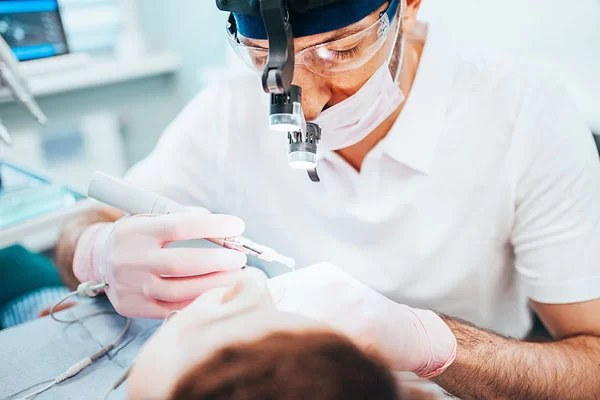Restoring Jaw Strength and Oral Health for Long-Lasting Dental Implants Near You
Modern dental implant technology has transformed how patients replace missing teeth—but successful dental implant treatment starts with a strong, healthy foundation. At Eastside Dental Implant Center, Dr. Sidhu provides advanced supplemental procedures in Issaquah, WA, to restore jawbone density, gum health, and oral stability for patients who are not yet ideal implant candidates.
If you’ve experienced tooth loss, bone resorption, gum disease, or tooth decay, you may still qualify for dental implants with the right preparatory treatment. Our implant-focused dental office proudly serves patients in Issaquah, Bellevue, Sammamish, Newcastle, Mirrormont, and nearby Eastside communities.
Call (425) 526-5424 to schedule a dental implant evaluation with our Issaquah implant dentist.
What Are Supplemental Procedures for Dental Implants?
Supplemental procedures are specialized oral surgeries designed to correct underlying conditions that may interfere with dental implant osseointegration—the process where titanium implant posts fuse with the jawbone.
These procedures address common issues such as:
- Jawbone deterioration or low bone density
- Bone loss caused by tooth decay or long-term tooth loss
- Gum disease (periodontal disease) and gingival recession
- Insufficient bone volume in the upper jaw or maxilla
- Sinus positioning that limits implant placement
By restoring bone, soft tissue, and structural support, supplemental treatments reduce implant failure risk, improve longevity, and enable predictable, long-term success for endosteal, subperiosteal, or zygomatic dental implants when appropriate.
Why Choose Eastside Dental Implant Center in Issaquah?
Patients searching for a dentist near them for dental implants choose our Issaquah office because we combine advanced surgical expertise, evidence-based planning, and personalized care.
What sets us apart:
- Board-level experience in implant dentistry and oral surgery
- State-of-the-art 3D CBCT imaging and digital treatment planning
- Precision-guided implant and grafting techniques
- Focus on patient comfort, safety, and informed consent
- Comprehensive education, transparent costs, and financing support
- Trusted care for Seattle’s Eastside implant community
Our goal isn’t just to place implants—it’s to build a healthy, durable foundation that supports your smile, bite, and overall oral health for decades.
Who Needs Supplemental Procedures Before Dental Implants?
During your implant candidacy evaluation in Issaquah, Dr. Sidhu carefully assesses your mouth, jaw structure, medical history, and smile goals. Supplemental procedures may be recommended if we detect:
- Jawbone deterioration or low bone density: Dental implants require adequate bone for stability and long-term success.
- Periodontal (gum) disease or soft tissue loss: Active disease increases infection risk and can compromise implant integration.
- Sinus proximity in the upper jaw (posterior maxilla): Limited space may prevent safe implant placement without sinus augmentation.
If you’re unsure whether you qualify for implants, a professional evaluation using advanced imaging and clinical data is the only reliable way to know. Call (425) 526-5424 to schedule a dental implant consultation near you.
Supplemental Dental Implant Procedures We Offer in Issaquah
Bone Grafting for Dental Implants
Bone grafting restores lost jawbone by placing natural or synthetic graft material into areas affected by bone resorption. Over time, your body regenerates new bone cells, creating a stronger implant site.
Benefits of bone grafting include:
- Rebuilding jawbone structure and density
- Creating a stable foundation for dental implants
- Supporting proper crown, bridge, or full-arch prosthesis placement
- Improving jaw function, speech clarity, and facial aesthetics
- Slowing premature facial aging caused by bone loss
Bone grafts are commonly used before placing endosteal dental implants and are critical for long-term implant longevity.
Soft Tissue Augmentation (Gum Grafting)
Soft tissue augmentation, also called gum grafting or gingival grafting, restores healthy gum tissue around teeth and implant sites affected by gum recession or disease.
Healthy gums protect implants, reduce bleeding and sensitivity, and improve aesthetics.
Benefits include:
- Covering exposed tooth roots
- Reducing gum recession and pain
- Improving oral hygiene and tissue stability
- Lowering implant failure risk
- Enhancing smile appearance and symmetry
This procedure is especially important for patients with a history of periodontal disease.
Sinus Lift Surgery
A sinus lift increases bone volume in the upper jaw by gently repositioning the sinus membrane and placing bone graft material beneath it. This procedure is often required for implants replacing upper molars.
Advantages of sinus lift surgery:
- Enables safe dental implant placement in the upper maxilla
- Improves implant stability and success rates
- Restores function and aesthetics in the posterior arch
- Supports long-term implant integration
Supplemental Procedure Recovery, Aftercare, and Healing Expectations
Proper recovery is essential after any supplemental dental surgery.
General aftercare guidelines include:
- Avoid strenuous activity for several days
- Maintain excellent oral hygiene while protecting surgical areas
- Take prescribed medication, including antibiotics and pain management, as directed
- Use cold compresses to reduce swelling and bleeding
- Follow a soft or liquid diet during early healing
Sinus lift patients should avoid blowing their nose or forceful sneezing to protect the graft and membrane.
Healing timelines vary:
- Minor grafting: A few weeks.
- Extensive bone grafts or sinus lifts: Four to nine months before implant placement.
Our team monitors healing closely to reduce complications and ensure optimal outcomes.
Supplemental Procedure Cost, Insurance, and Payment Information
The cost of supplemental procedures for dental implants in Issaquah depends on treatment complexity, anatomy, and materials used.
Average ranges:
- Bone grafting: $300 to $1,200 per site
- Sinus lift: $1,000 to $3,000 per site
- Gum grafting: $600 to $1,200 per tooth
Insurance coverage varies by plan and medical necessity. Some procedures may be partially covered by dental or medical insurance.
Our office helps patients:
- Verify insurance benefits
- Understand deductibles and out-of-pocket expenses
- Explore flexible payment and financing options
Frequently Asked Questions
Dr. Sidhu uses advanced 3D imaging and density analysis to assess your jawbone during your Issaquah evaluation. This data-driven approach ensures safe, evidence-based treatment planning.
Yes—after treating the disease and restoring healthy gum tissue, many patients successfully receive implants with excellent long-term outcomes.
Supplemental procedures are performed using local anesthetic and modern anesthesia techniques to minimize discomfort. Post-surgical pain is typically manageable with medication.
Absolutely. Restoring bone and tissue dramatically improves implant stability, reduces failure risk, and supports long-term prosthesis success.



